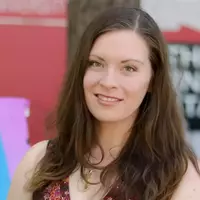Supporting TA Success in your Classes
Leaders
 Rachel Teasdale, California State University-Chico
Rachel Teasdale, California State University-Chico
 Kelsey Bitting, Elon University
Kelsey Bitting, Elon University
 Katherine Ryker, University of South Carolina-Columbia
Katherine Ryker, University of South Carolina-Columbia
A 2016 survey of geoscience faculty across US institutions revealed that GTAs serve in a wide variety of instructional roles and perform a myriad of important tasks such as leading labs, grading papers, and holding office hours. Most faculty respondents to that survey believed that GTAs would benefit from substantive pedagogical preparation for those roles, but that type of support is rarely built into our departments at the program level. This session will discuss approaches to supporting GTAs in the context of your courses, including both professional development strategies and structures, to help GTAs both support your instructional goals as effectively as possible and to help them develop the broader academic skill set that will prepare them for careers in academia and beyond.
Notes from our conversation, with thanks to everyone who participated!
Recall: Fuller's concerns-based model of teacher development - instructors move through three stages of concerns:
- Self (e.g., survival, self-adequacy, and acceptance),
- Task (e.g., student performance and teacher duties), and
- Impact (e.g., social and educational impact on the system).
Fuller theorized that teachers could not move to the next stage of concern without first solving concerns of the previous stage.
Our conversation: How can we best support our TAs within each stage and in facilitating their movement from one stage to the next (and to a 4th stage of professional life after being a TA)?
Notes from our conversation are here (Acrobat (PDF) 495kB Jul17 18)
References:
- Fuller, F. F. (1969). Concerns of teachers: A developmental characterization. American Educational Research Journal, 6,207–26.
- Fuller, F. F., & Brown, O. H. (1975). Becoming a teacher. In K. Ryan (Ed.), Seventy-fourth yearbook of the National Society for the Study of Education: Pt. 2. Teacher education.Chicago: University of Chicago Press.
For more on teacher development theories, see this link: https://www.developingdifferencemakers.com/education-blogs/april-12th-201611
